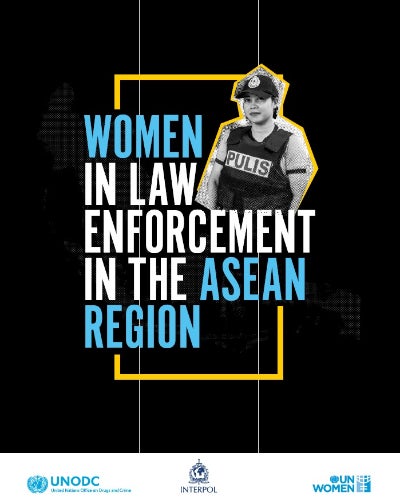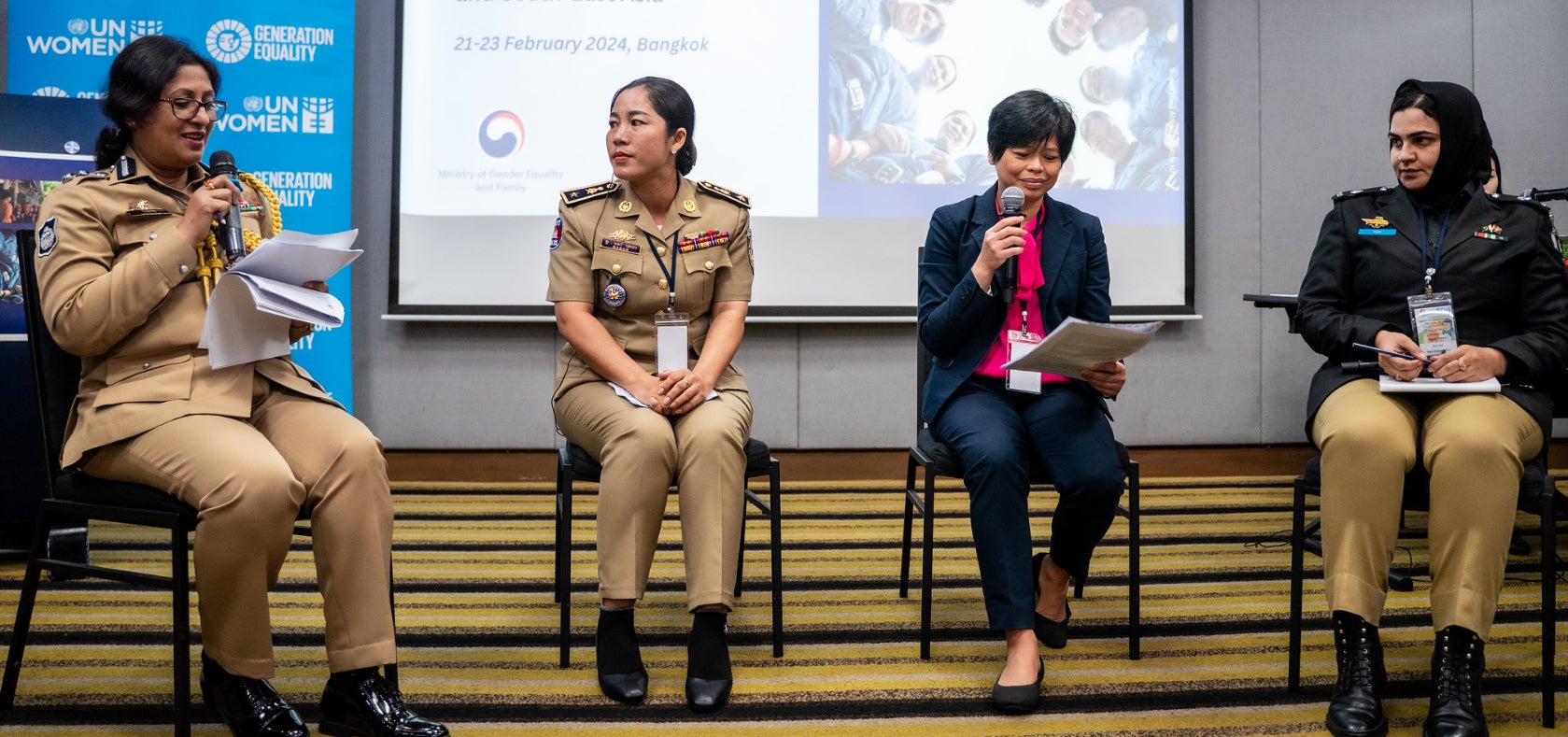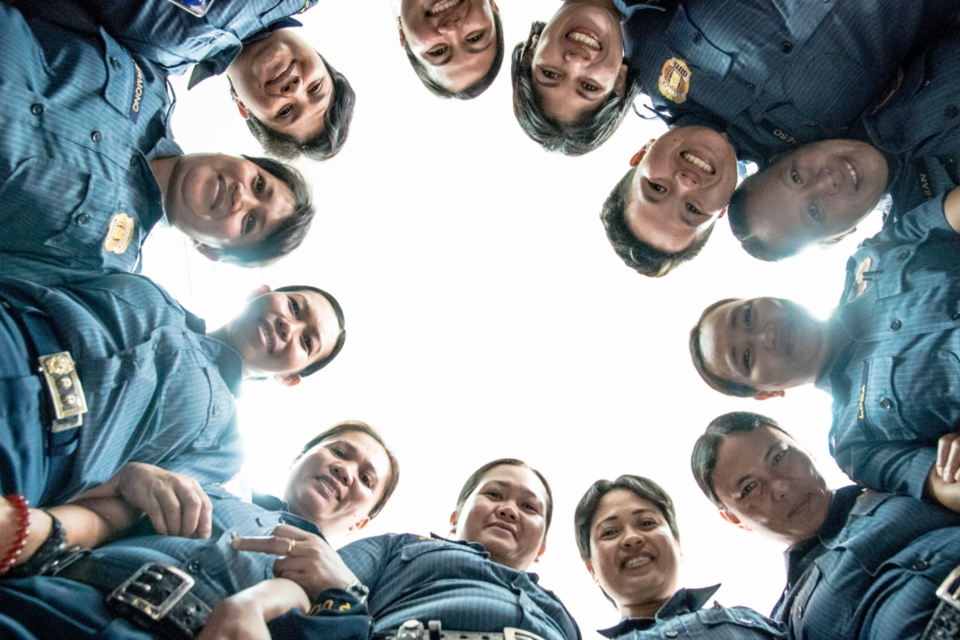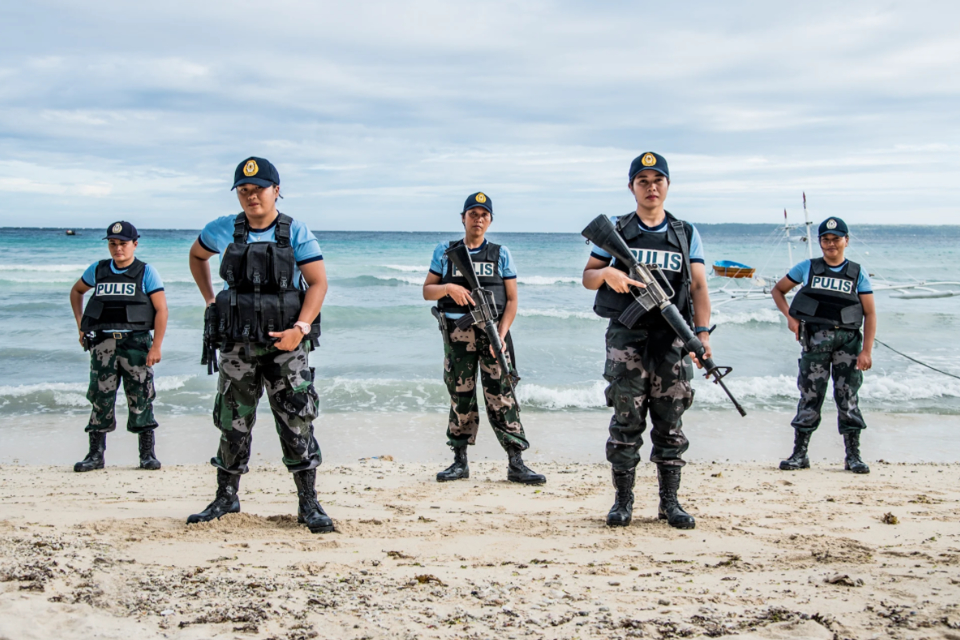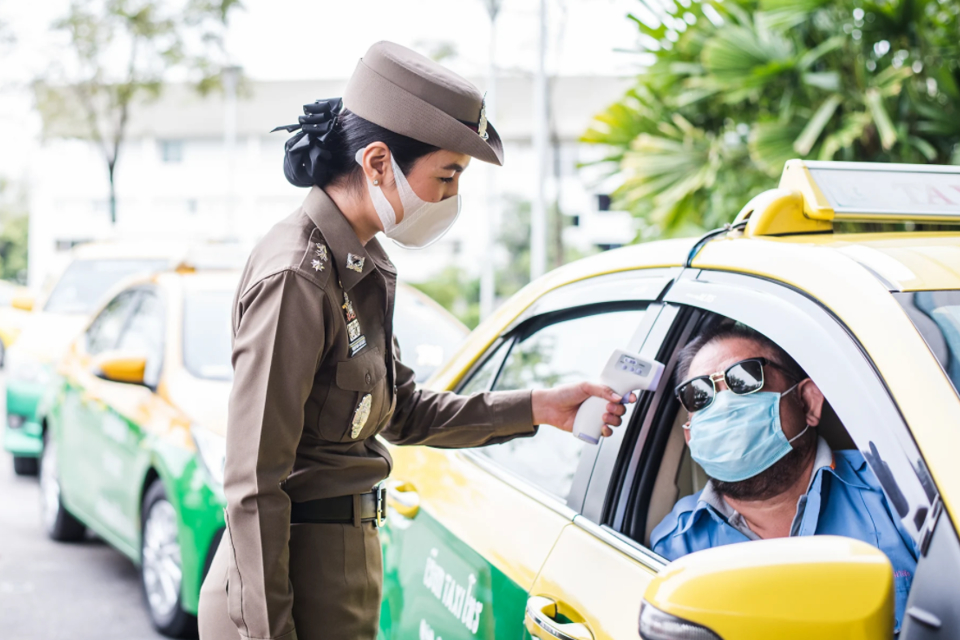Women in Policing
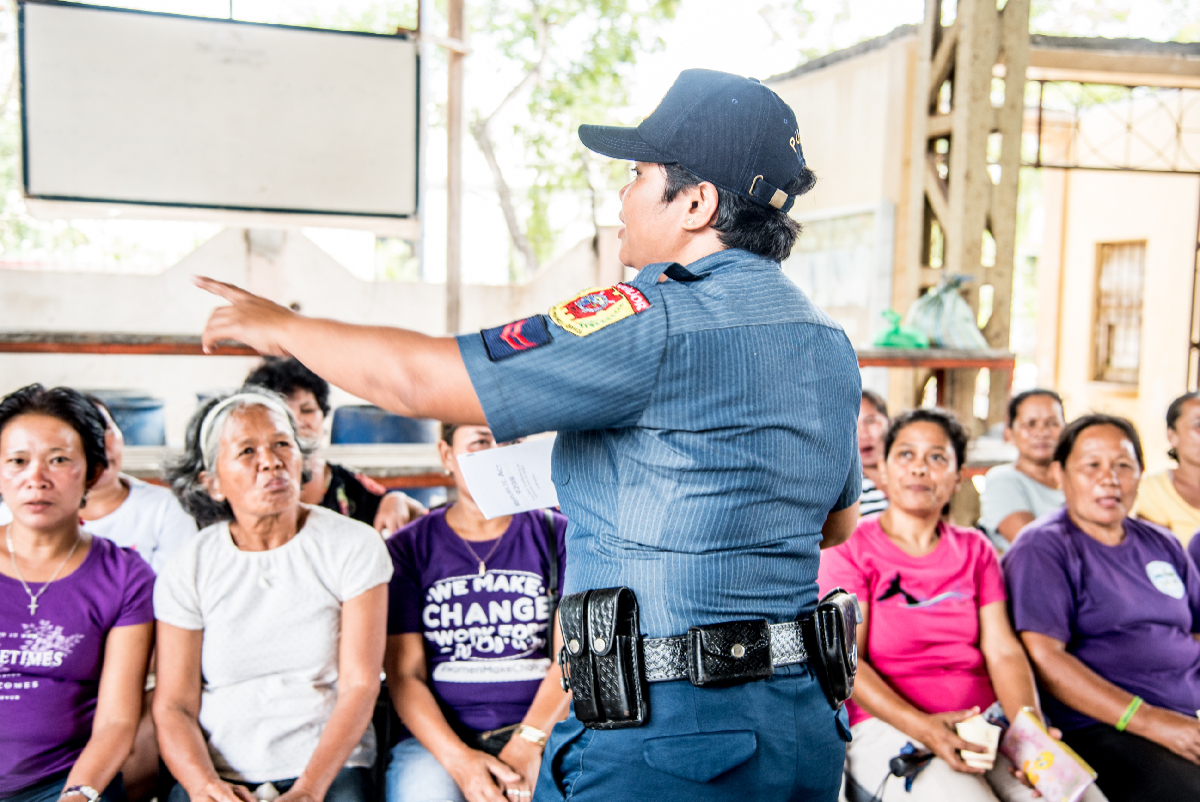
Featured event:
![[banner]](/sites/default/files/2024-04/Policing-workshop-main-graphic3.jpg)
| Regional workshop |
Gender-Responsive Community-Oriented Policing in South Asia and South-East Asia
Bangkok, Thailand. Read more
When women participate in policing – at all levels and in all roles – everyone benefits. Law enforcement and other security responses are more responsive to, and reflective of, communities. The meaningful participation of women in policing increases operational effectiveness, enhances community trust and decreases corruption. Despite this, women remain chronically underrepresented in policing across Asia and the Pacific.
Inclusive approach
Through our Regional Framework Towards Peaceful, Inclusive Societies, UN Women is promoting a shift from a securitized and militarized approach to security. The principles of the Women, Peace, and Security (WPS) agenda advance an inclusive and people-centred approach whereby women, including at the community level, play a central role with state authorities in shaping the understanding of security needs, preventing conflict and providing solutions.
Gender-responsive community-oriented policing
Community-oriented policing is proactive policing designed to allow the community to become partners in providing policing services to benefit communities. Integrating a WPS lens to community-oriented policing is fundamental to making policing more relevant and effective in understanding the needs of women and their communities, and tailoring policing strategies to people’s priorities and concerns.
In partnership with the Standing Police Capacity (SPC), UN Department of Peace Operations, and with the generous support of the Government of the Republic of Korea through its Ministry of Gender Equality and Family, UN Women is promoting women's meaningful participation and leadership in community-oriented policing to help build more resilient and peaceful societies.
Through the initiative, ‘Sustaining Peace in Partnership: Women’s Leadership in Community-Oriented Policing’ UN Women and SPC conducted assessments in 2023 in four countries – Bangladesh, Pakistan, the Philippines and Thailand – to identify barriers, good practices and partners in gender-responsive community-oriented policing in each country. Training on gender-responsive community-oriented policing and leadership for women and men police officers is being conducted in 2024.
— Woman Police Officer, BruneiThe police force is very unique. It is not like the army where they serve the nation. Police serve the community. And the best way to serve the community is to reflect your community. So if your community is 50-50 then your force must also be 50-50. How would we be able to address female concerns if we didn’t have female officers?”
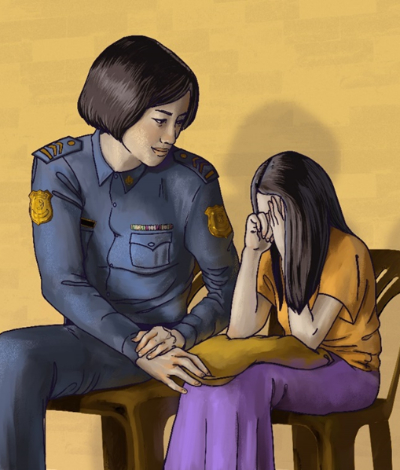
Videos
Report: Women in Law Enforcement in the ASEAN Region
UN Women and UNODC partnered with INTERPOL to undertake groundbreaking research on Women in Law Enforcement in the ASEAN Region in 2020, with the generous support of the Government of Canada. This built on earlier cooperation between UN Women and UNODC to support women in law enforcement, with a focus on women in law enforcement at transit points to combat trafficking in women and girls.
The research highlighted how women make an essential contribution to law enforcement in the ASEAN region, including increasing overall operational effectiveness, improving law enforcement responses to sexual and gender-based crimes, and enhancing perceptions of the legitimacy of law enforcement institutions, despite being underrepresented in law enforcement.
The full report, as well as a summary, animated video highlighting key findings, and recorded webinar of the launch are available below:
- Women in Law Enforcement in the ASEAN Region – Full report is available in English, Bahasa Indonesia, Burmese, Khmer, Lao, Malay, Thai and Vietnamese.
- Women in Law Enforcement in the ASEAN Region – Summary
- Animated video on Women in Law enforcement available in English and subtitled in Burmese, Bahasa, Lao, Khmer, Malay, Thai and Vietnamese.
- Recorded video of the launch of the Report on 26 August 2020
- Recorded webinar of the side event on "Promoting Women in Law Enforcement across ASEAN", on the margins of the 10th session of the Conference of the Parties to the United Nations Convention against Transnational Organize Crime (COP 10) that took place on Wednesday 14 October 2020.
Stories
See also
- Facilitation Handbooks – Applying a gender-responsive and victim-centered approach to carry out investigations related to trafficking in persons and other criminal activities, available in English, Bahasa Indonesia, Malay, Burmese, Khmer, Lao, Thai, and Vietnamese.
- Brief on Four years of collaboration between UN Women and UNODC to achieve long standing results
Community Engagement: Promoting Women in Law Enforcement
UN Women, UNODC and INTERPOL, worked with visual artists to highlight the positive impact of women in law enforcement.
Visit our joint Virtual Photo Exhibition: Promoting Women in Law Enforcement in the ASEAN region. Selected photographs were also exhibited at the Alliance Francaise, Bangkok, in 2020.
Posters on the role of law enforcement to protect women and children during a public health crisis including COVID-19 developed jointly with UNODC and UNICEF:
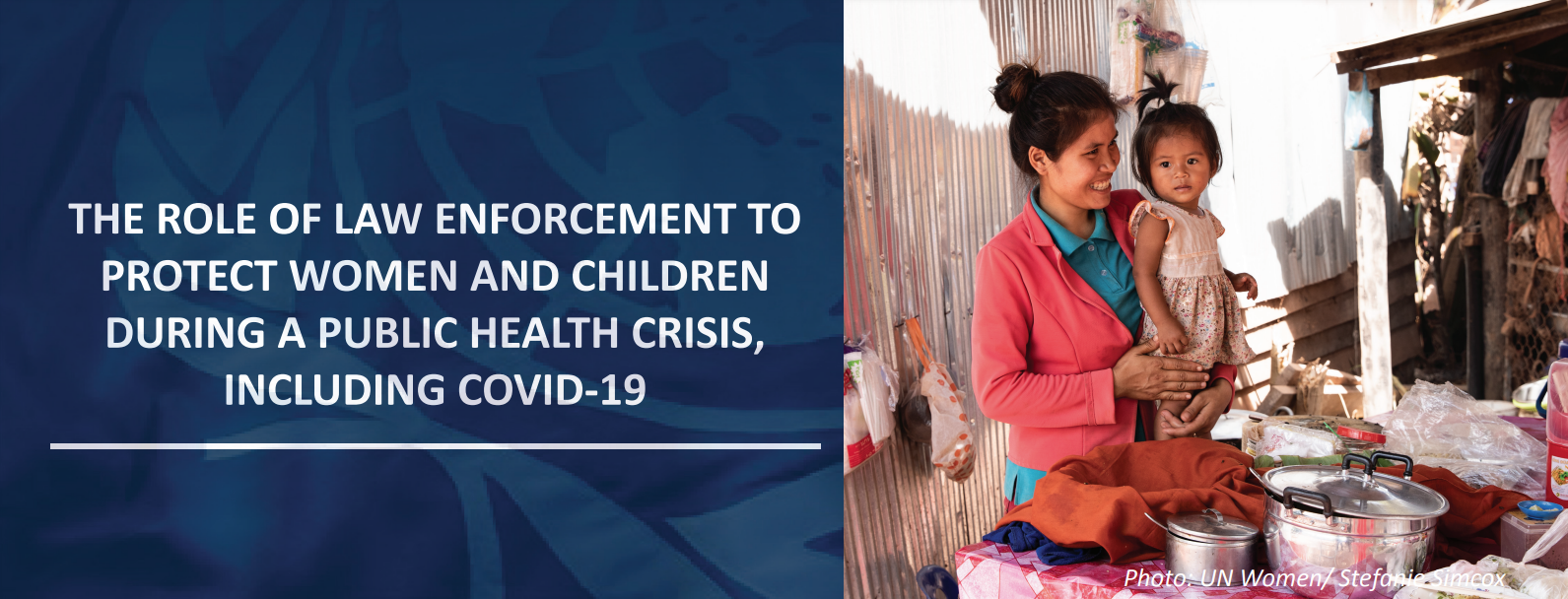
POSTERS
- Burmese,
- Khmer,
- Lao,
- Thai,
- Vietnamese.
